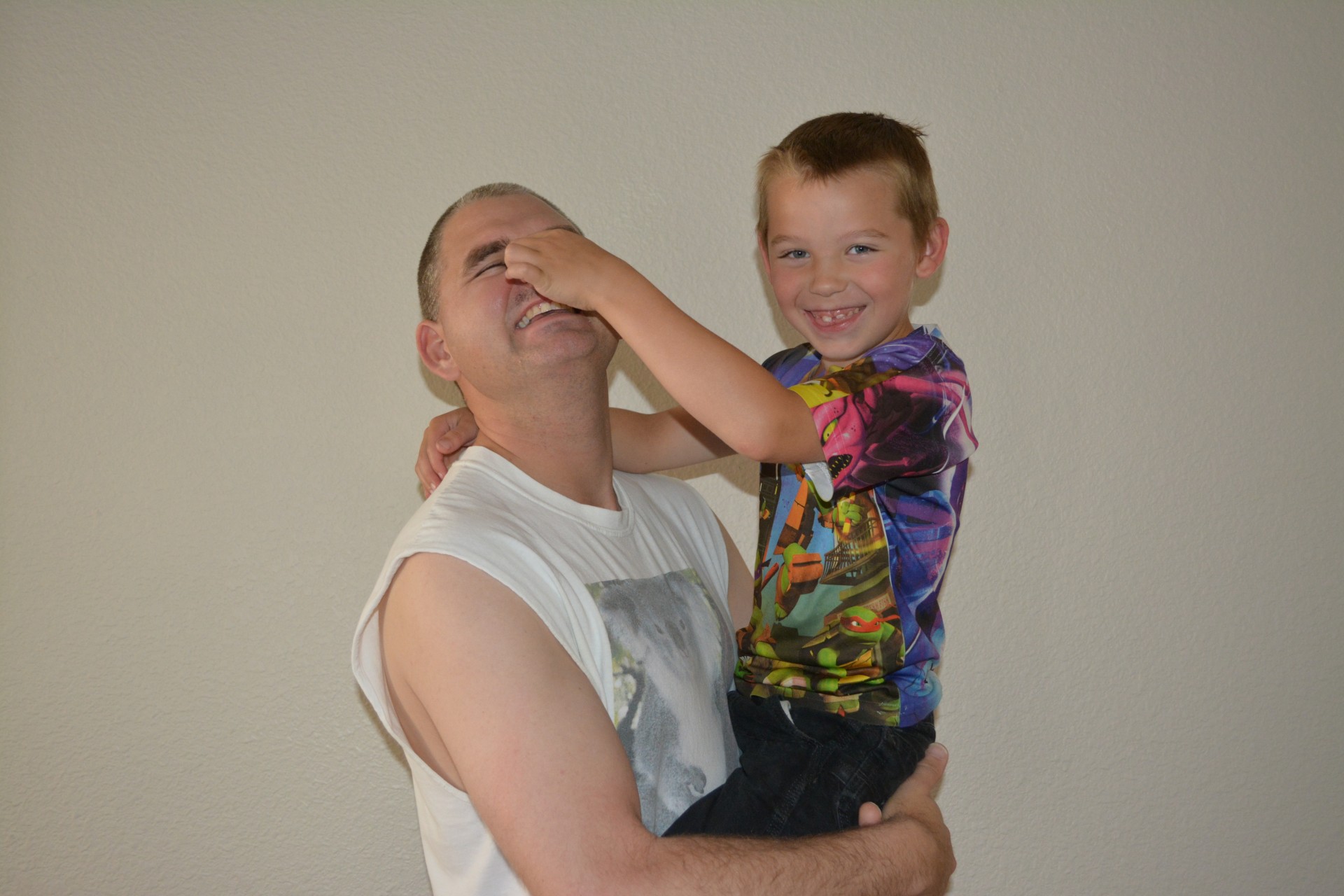Toddler's Declaration of Independence
Your toddler's determination to do things herself is sure to spark some fireworks. The Tantrums Just before my daughter Agnes's second birthday, a new aspect of her personality we dubbed "the Beast" emerged. She was still our loving, cooperative, funny angel -- except when she told us she wanted to "do it myself!" We first noticed this behavior at the dinner table, where she insisted on pouring her own milk, and every attempt resulted in several cups of expensive organic milk spilling all over the floor. Not letting her try made the Beast appear. Letting her try and watching her spill milk everywhere made her howl with anger (the phrase "Don't cry over spilled milk" soon lost its humorous appeal). And guess what? If you have a child inching toward toddlerhood, the Beast will soon appear in your house.
As maddening as this behavior is, it's important to remember that it's a necessary bump on your child's road to becoming an independent little person -- one who will someday wriggle into his Superman Halloween costume all by himself and declare he'll wear it for the rest of his life. But as veteran parents can attest, the road to independence is filled with potholes; tantrums, frustration, and lots of spilled milk are all part of the ride. However, there are ways to navigate this bumpy terrain without blowing a gasket -- yours or your child's.
"I'll Do It My Way!"
The seeds of independence are actually sowed quite early, far earlier than the point at which your child can say, "No! Me do it!" The very first step occurs around 6 months of age, when baby begins to understand that he's an individual, separate from his parents.
Surprisingly enough, baby's first indication of independence may be crying when Mom or Dad leaves the room. Separation anxiety in all its noisy glory is a sign that your child understands he's his own person; as much as he wants to try things out himself, he's still unsure about it and wants Mom or Dad around. From there, the signs get more obvious. A 7- or 8-month-old may grab his spoon to feed himself; a 9- or 10-month-old will crawl to his toy box and select the toys he wants to play with.
Perhaps the biggest hallmark of independence is learning to walk at around age 1, according to Alan Fogel, PhD, a professor of psychology at the University of Utah. "Baby learns he can walk away from Mom and walk back when he wants to -- suddenly he is in control of his own destiny." But that's really just the very beginning. At around 18 months, your child reaches the "my way or the highway" stage: There are a number of tasks he can do, but not with any real skill, and your participation is probably not welcome.
So where does all this confidence come from? At this age, a large variety of skills start to come together. Your child's increasing vocabulary allows him to tell you what he wants. He's been walking long enough so that he feels surefooted; his small- and large-motor skills work together more smoothly; and he's handled enough tasks, such as making a block tower, that he feels pretty confident about mastering his environment.
That's great, but there are lots of things that your toddler can't do very well. He's not able to judge what kinds of tasks are too difficult for him to complete, and he certainly doesn't have enough control over his emotions to deal gracefully with obstacles to his independence. To compound all of this, he's less than thrilled when you try to help him along or secure his safety. (He doesn't yet understand that climbing up the front of the fridge could be disastrous.) So each day can bring a new victory -- or frustration -- as your child balances what he wants to do with what he can do. Every day is an internal battle for him over who's in charge: him or others.
4 Strategies for Parents
All of this inevitably leads to some very beastly -- but wholly necessary -- outbursts. "Your toddler's constant 'no's,' arguments, and refusals to cooperate are a necessary part of learning to separate from parents. It's a good thing," says Mark Goldstein, PhD, a clinical child psychologist in private practice in Chicago. The more your child focuses on different tasks, fails, then tries again, the more he learns about problem-solving and the more confident he will become at tackling new endeavors.
That's all well and good, but how do you handle a toddler who seems destined to end up either in the ER or in an anger management program? With a lot of patience and the following strategies.
Control the environment. Fend off tantrums and encourage your child's explorations by making your home safe and accessible for your child. Put tempting breakables out of his reach, cover electrical sockets, and place baby gates in the doorways of rooms that are off-limits. If, for example, you spend lots of time together in the kitchen, place toddler-friendly pots and pans in low drawers he can reach. This approach solves several problems: You won't have to scream "No!" all the time, you won't break your toddler's intrepid spirit, nothing will get broken, and your little one will be less likely to get hurt.
Let her make some of her own decisions. Children learn from making their own choices. So in safe situations, try to let her do just that. After all, she's highly unlikely to get hurt by wearing stripes with polka dots. The hardest part of this task is allowing your child to do something utterly ridiculous while maintaining a sense of fairness and humor. Andrea Kane of Decatur, Georgia, has firsthand knowledge: "My daughter, Carina, always wants to wear her ballet clothes. I let her, provided she wears weather-appropriate layers underneath it all," she says. "Sometimes she looks a little odd, but we're all happy."
In other instances, you can meet your child halfway; allowing him to pick out his own breakfast every day, for instance, would be sure to put him in a sugar coma. Allow him to choose from a couple of options he likes: Does he want Cheerios or eggs for breakfast? It's also helpful to find compromises that allow your child to take some control of his life. For example, he can climb into the car seat himself, but you buckle him in.
Figure out ways to let your toddler do things himself. There's no reason why your toddler can't put his toys away or feed himself -- he just needs you to help make it easier for his little hands and limited attention span. Use small, sturdy dishes and utensils so he can more easily feed himself, and place toy shelves low to the ground so favorite items will be easy to reach. These simple adjustments mean that your child can do more on his own.
You may also want to consider having him help with simple chores, such as folding napkins. Jackie Hornbeck-Wall of Atlanta lets her 18-month-old son, Isak, help her transfer laundry from washer to dryer, though she's the first to admit that her little helper sometimes finds creative ways to assert his independence: "One day he grabbed his still-wet doggy shirt out of the washer. No amount of pleading could convince him to let me dry it before he put it on. So I let him carry his wet shirt around, trying to put it on, until he fell asleep and dropped it. I was able to dry it, but then he wore it for two days."
Don't jump in too quickly. "Resist the temptation to always take over and do it yourself to save time and frustration," says Goldstein. Too much intervention can be just as detrimental as leaving your child to her own devices; it undermines her confidence and makes her reticent to strike out on her own in other scenarios. Parents often jump in when they're crunched for time. If you know your child is going to insist on wriggling into her own pants before you go out for the day, build in some extra time to let her give it a try. However, if your child is truly heading for a meltdown, step in and offer instructive help. If she can't get her foot to the end of her pant leg, say "Sitting down may help," and guide her to a chair.
The journey to independence is not an easy one, but experts agree that letting go and parenting gently during this time will help you all get through it.
Retrieved From: https://goo.gl/bqYXpj
|
|

















